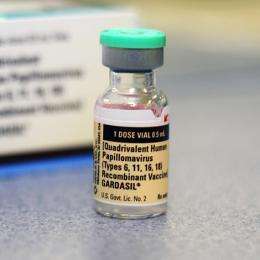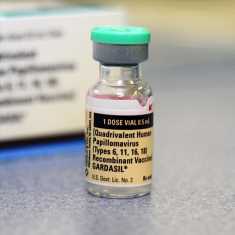
Q: Why is it important for my 10-year-old to get the HPV vaccine?
A: If you are the parent of a preteen who is between the ages of 9 and 12, it’s time to make sure they are protected from cancer. The human papillomavirus vaccine prevents cancer caused by several types of HPV.
The HPV vaccine prevents cervical cancer, as well as cancers of the mouth, throat and penis. It also prevents genital warts.
The vaccine is very safe and effective—and kids need to get the vaccine when it is recommended.
The American Academy of Pediatrics recommends kids get two doses of the vaccine between the ages of 9 and 12. Here’s why:
- The vaccine is more effective if given sooner. This is partly because preteens produce more antibodies after HPV vaccination than older adolescents do. The vaccine just works better with their immune system.
- Kids are protected from cancer before they are exposed to the virus. Giving the vaccine earlier also means they can be protected well before they are exposed to the virus. That’s what you want, because this is a vaccine that that can actually prevent cancer.
So, let’s say your teen is 15 years old and has not had their first dose. It’s not too late. The AAP recommends a total of three doses instead of two doses. People with certain conditions that weaken the immune system also get three doses. And your teen can get the HPV vaccine at the same time as other vaccines.
Most HPV infections will not lead to cancer, but we can’t predict which infections will cause cancer later in life.
HPV is easily spread—it can be passed even when an infected person has no signs or symptoms.
Most people who become infected with HPV get it within 2-3 years of their first sexual activity.
Someone who only has one partner can get HPV. Plus, sexual intercourse is not required for transmission.
Many patients are behind on HPV screening—and HPV vaccination—due to the COVID-19 pandemic. To avoid preventable cancers, it’s crucial that kids and teens receive recommended HPV vaccinations along with all recommended immunizations.
Once they turn 21 years old, women and those assigned female at birth should be screened for cervical cancer. People at highest risk for cervical cancer are those who are unvaccinated, who are overdue for screening and those who had an abnormal result but have not received follow-up care.
To prevent cervical cancer, patients are screened using HPV and Pap tests. A Pap test screens for precancers. An HPV test checks for the virus that causes cells to change and become cancerous.
If a patient has an abnormal Pap or HPV test, they should get a biopsy of their cervix. Some patients develop severe precancerous changes and require a minor surgical procedure to remove the diseased portion of their cervix before they develop invasive cancer. They will need more frequent HPV and Pap tests to make sure they are not developing cancer.
Three of every four adults will have at least one HPV infection before age 30. Each year, more than 46,000 people—men and women—suffer from cancers caused by HPV. Over 7,000 die per year from cancers caused by HPV, including penile, vaginal, vulvar, anal, and head and neck cancers.
Source: Read Full Article
